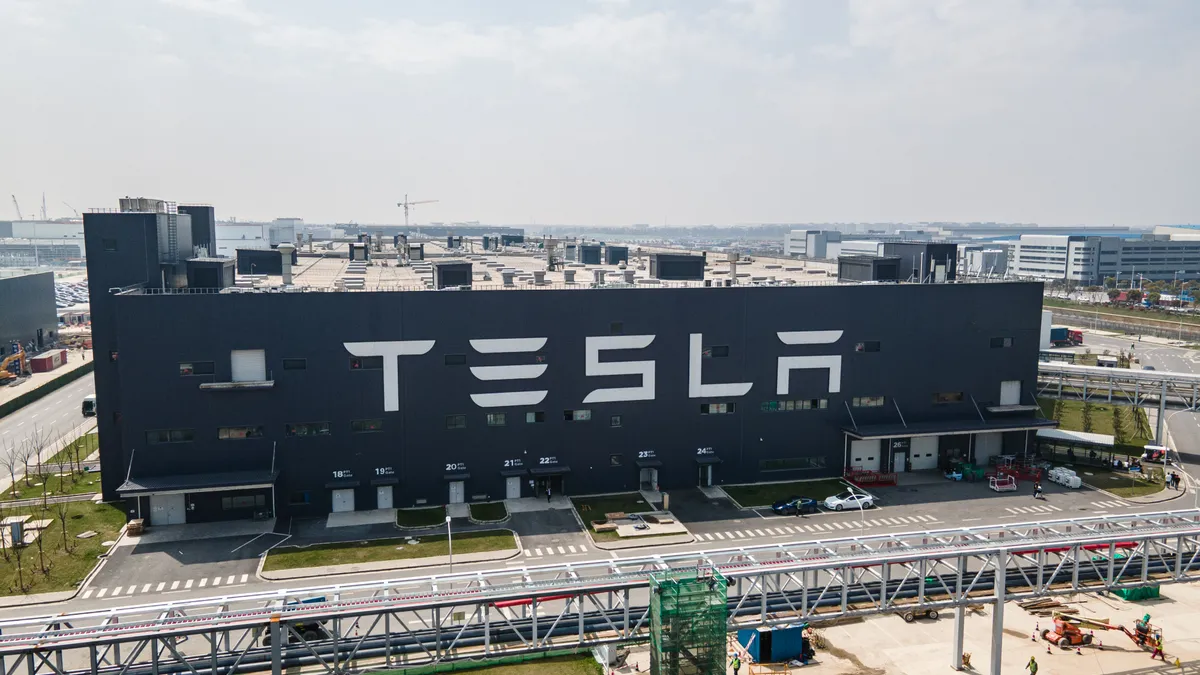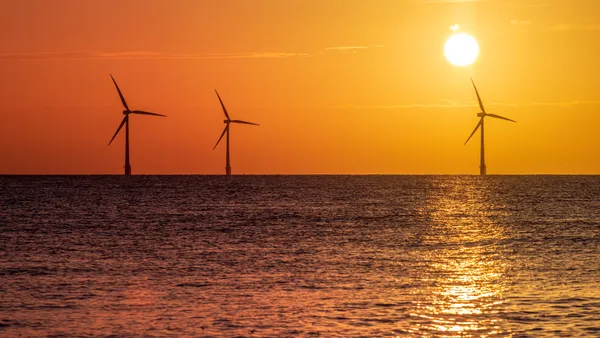Dive Brief:
- The U.S. Securities and Exchange Commission is investigating Tesla over a failure to disclose a fire risk associated with defects to its solar panels, according to a report from Reuters.
- The investigation follows a whistleblower complaint from former field quality manager Steven Henkes, who alleged in 2019 that Tesla did not properly disclose the potential injury or property damage that could result from panel defects after it acquired solar developer SolarCity. Henkes has sued Tesla, saying he was fired for raising safety concerns.
- Pavel Molchanov, an analyst with Raymond James, said that since SolarCity remains just a small part of Tesla's overall clean energy and automotive operation, the overall impact of the investigation could be limited.
Dive Insight:
When it acquired SolarCity in 2016, Tesla positioned itself as a clean energy giant, with CEO Elon Musk promising a "smoothly integrated and beautiful solar-roof-with-battery product" that customers could use to power their electric vehicles. However, the solar business has lagged since then. Although Tesla Energy was the top residential solar installer in the U.S. for several years, it was passed in 2018 by SunRun, according to an annual report from Wood Mackenzie. With 14% of the residential solar market — and buoyed by the acquisition of Vivint Solar — Sunrun remained the top installer in 2020, with Tesla in second place.
Molchanov said in an email that Tesla’s focus on its automotive business had come at the expense of the SolarCity arm. That, he said, could limit the impact of the SEC investigation.
"If such an investigation were to apply to SolarCity individually, it would be potentially a big deal. But what remains of SolarCity represents a meaninglessly small part of Tesla’s business," Molchanov said. "It may be that this investigation will spur Tesla executives to invest even less resources in the solar business, but regardless, it is immaterial for the overall company."
Solar sales have rebounded in 2020 and 2021, although Musk admitted earlier this year the company had made "significant mistakes" with its solar roof plans. So far, Tesla has installed 260MW of solar in the first three quarters of 2021, with deployments more than doubling year over year, according to its third quarter earnings statement. Tesla has also said it is lowering prices and restructuring the energy business to increase profitability.
However, the SEC probe and renewed attention to the fire risk could blunt some of that momentum. According to Reuters, the investigation was disclosed as part of a Freedom of Information Act request by Henkes, who sought information on the whistleblower complaint he filed in 2019. Henkes, a former Toyota Motor manager, also filed a complaint with the Consumer Product Safety Commission, CNBC reports.
Reuters reports that according to Henkes' lawsuit, more than 60,000 residential customers and 500 commercial or government customers would be affected by the issue.
The SEC did not confirm its investigation.
Although there had been reports of fire risks from SolarCity products, the most high-profile case came in 2019 when Walmart sued Tesla after roof fires on at least seven stores that had installed Tesla Energy systems. In its lawsuit, the retail chain alleged "years of gross negligence" and a pattern of hastily-installed systems. The two settled later that year, although terms have not been released and the solar systems remain on Walmart roofs.













